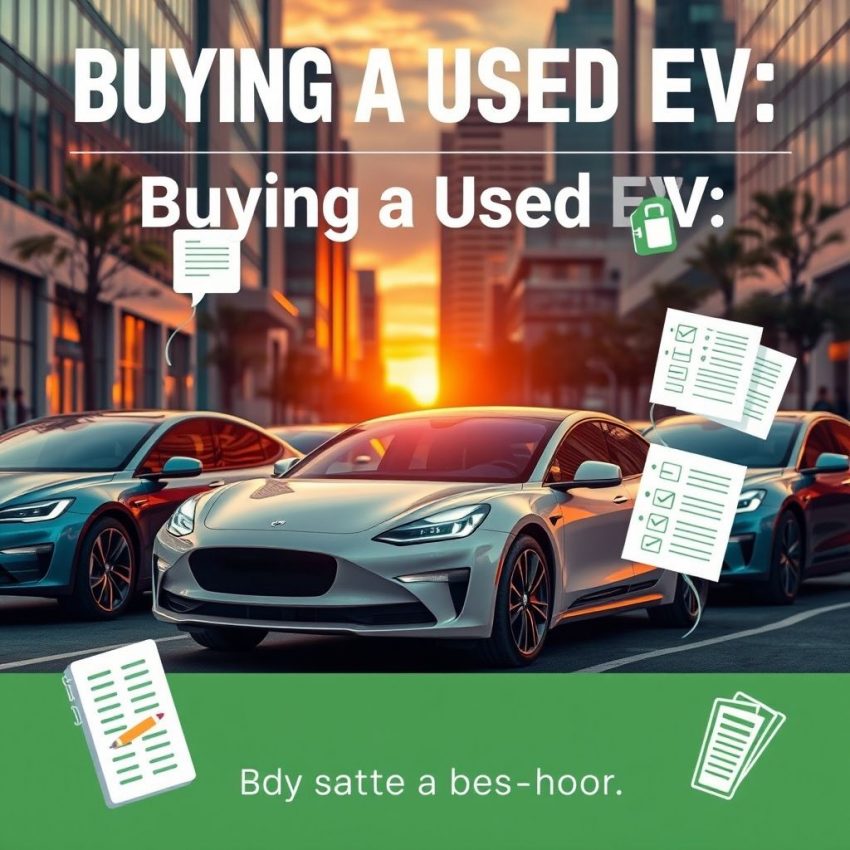Here's How to Buy the Best Used Electric Vehicle (EV)
The electric vehicle (EV) market is booming, and with more models hitting the used car lots, now's a great time to consider a pre-owned EV. But buying a used EV requires a slightly different approach than buying a used gasoline car. This guide will walk you through the key considerations to ensure you snag a fantastic deal on a reliable, pre-loved electric ride.
1. Know Your Needs and Budget:
Before you even start browsing, define your requirements. Consider your daily commute, family size (passenger and cargo space), desired range, and importantly, your budget. Used EVs offer a wider price range than new ones, but remember to factor in potential repair costs.
2. Research, Research, Research:
Once you've established your needs, research specific models. Look at reliability ratings from sources like Consumer Reports and J.D. Power. Pay close attention to common issues reported for each model year and trim level. Understanding these potential problems can save you significant money down the line.
3. Check the Battery Health:
This is arguably the most crucial aspect of buying a used EV. The battery is the most expensive component, and its health directly impacts the car's range and lifespan. Here's what to look for:
- Battery Capacity: Look for reports showing the battery's State of Health (SOH). A lower SOH indicates a degraded battery, meaning shorter range and potentially higher replacement costs. Dealers may provide this information, but independent inspections are advisable.
- Warranty: Determine if any remaining battery warranty exists. This can be a game-changer in mitigating potential repair expenses.
- Charging History: Inquire about the car's charging history. Consistent fast charging can put more stress on the battery than slower home charging.
4. Inspect the Vehicle Thoroughly:
Beyond the battery, a thorough inspection is crucial. Look for:
- Body Damage: Check for dents, scratches, and any signs of previous accidents.
- Interior Condition: Evaluate the upholstery, wear and tear on the seats, and overall cleanliness.
- Tire Condition: Check tire tread depth.
- Electrical System: Test all features, including lights, windows, climate control, and infotainment systems.
5. Get a Pre-Purchase Inspection:
This is non-negotiable. Find a qualified mechanic, ideally one experienced with EVs, to perform a comprehensive inspection. This inspection should include a thorough assessment of the battery, charging system, motor, and other critical components. The cost of the inspection is a small price to pay for the peace of mind it provides.
6. Negotiate the Price:
Armed with your research and inspection report, you're in a strong position to negotiate a fair price. Don't hesitate to point out any issues revealed during the inspection and use them as leverage.
7. Secure Financing:
Financing a used EV might require a slightly different approach than financing a gasoline car. Some lenders may offer specific EV loan programs, so shop around and compare interest rates.
Buying a used EV can be a rewarding experience, offering significant savings compared to buying new. By following these steps, you can increase your chances of finding a reliable, affordable electric vehicle that meets your needs and fits your budget. Happy driving!
Don’t miss out on this exclusive deal, specially curated for our readers!
This page includes affiliate links. If you make a qualifying purchase through these links, I may earn a commission at no extra cost to you. For more details, please refer to the disclaimer page. disclaimer page.

